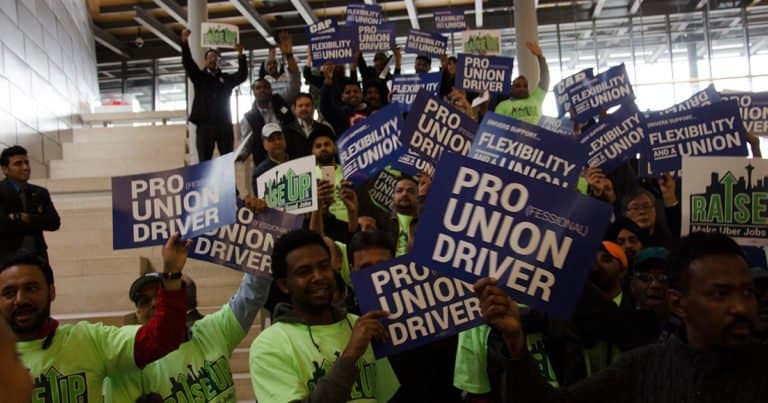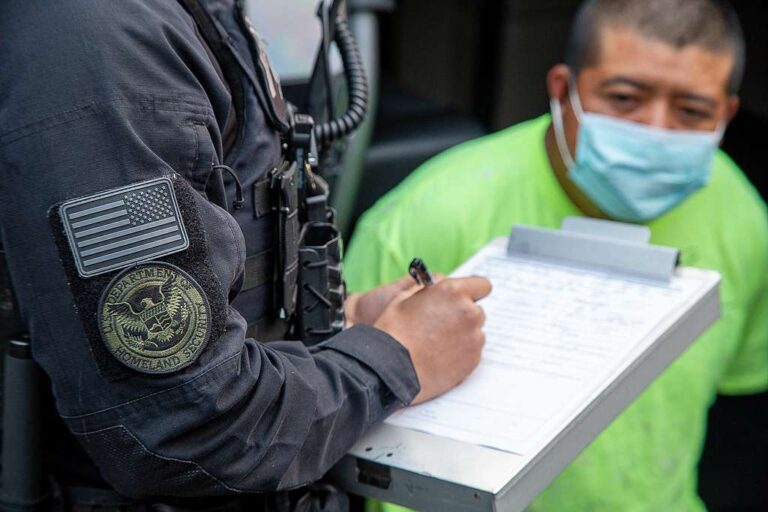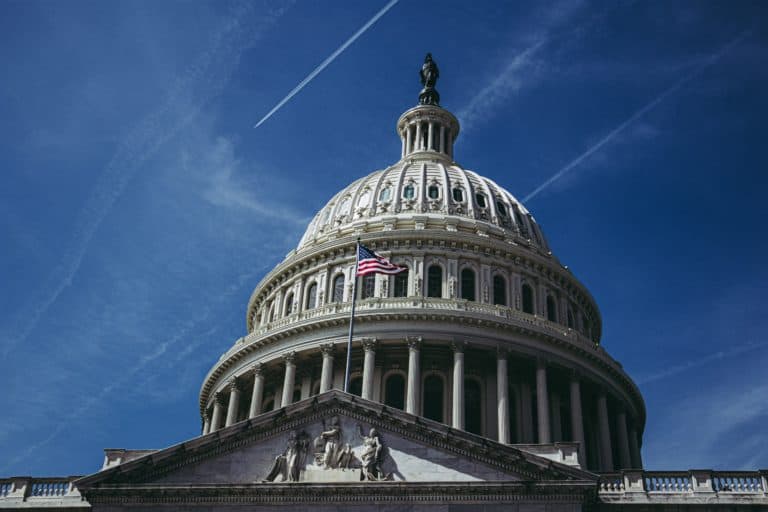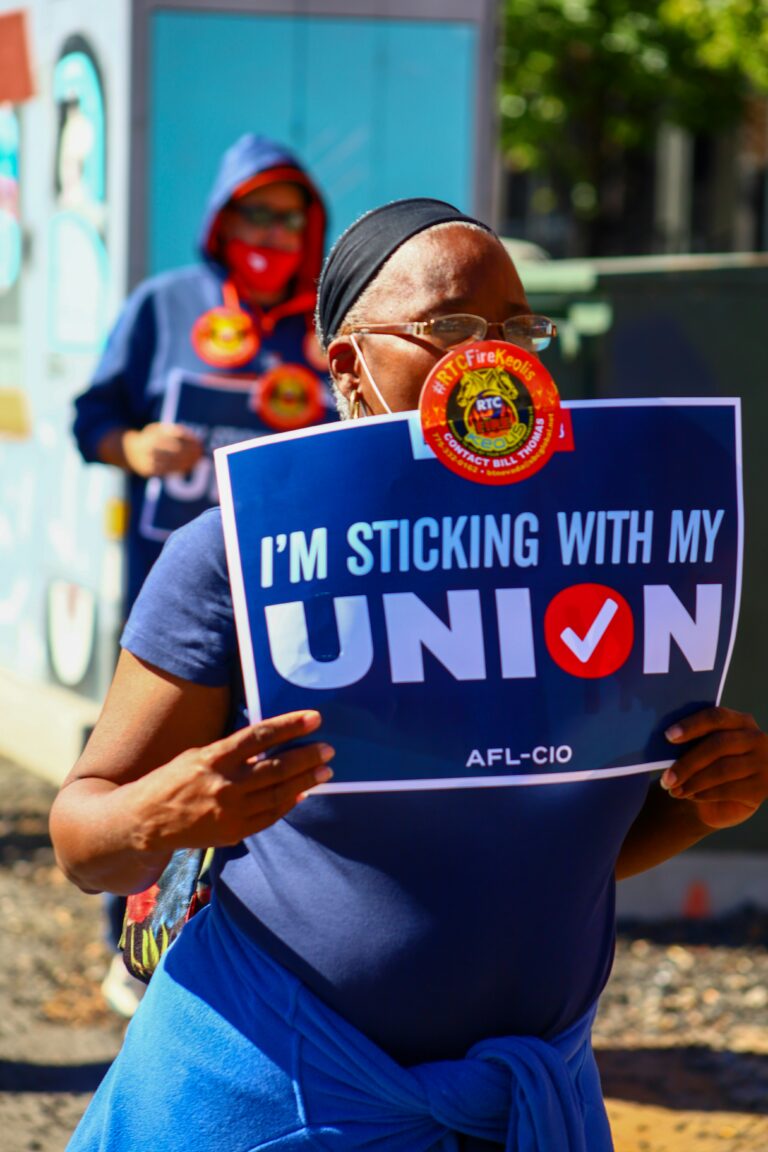
Andrew Strom is a union lawyer based in New York City. He is also an adjunct professor at Brooklyn Law School.
On May Day, workers at Amazon, Instacart, and Target went out on strike, primarily over health and safety concerns. While the strikes garnered a lot of media attention, it’s not clear how many workers participated, and it does not appear that they have led to any changes in company policies. When workers start to organize, employers often convey the message that organizing is futile. And workers who have never engaged in collective action, may believe that it’s not worth trying, either because they don’t think their co-workers will stick together, or because they fear that their employer is just too powerful. But, some recent events before COVID-19 turned the world upside down serve as a reminder that workers may have more power than they realize, and they have been using that power in ways that challenge basic premises that inform our labor laws.
Just before all non-essential workers went into lockdown, 75 workers at the publishing company Hachette Book Group walked off the job to protest the company’s announcement that it was publishing Woody Allen’s autobiography. Like any good labor lawyer, my first reaction was to think about whether the strike was protected by the National Labor Relations Act (NLRA). But, before I had much time to think about that question, it became moot because Hachette announced that it was giving in to the workers’ demands. The Hachette strike, like the wave of teacher strikes we saw in 2018, is a reminder of the power of collective action. And when workers overcome their own fear, sometimes they can succeed despite hostile laws.
When the Hachette workers walked out, they issued a short statement saying that they were acting “in protest of the publication of Woody Allen’s memoir.” The statement went on to declare, “We stand in solidarity with Ronan Farrow, Dylan Farrow and survivors of sexual assault.” When it comes to strikes, federal labor law sets up a series of traps for the unwary. For instance, if your employer assigns you and your co-workers an objectionable task, a refusal to perform that task is considered an unprotected partial strike but a complete cessation of work until your employer withdraws the assignment would be a protected strike. Of course, “protected” is a misleading term because even when you have a right to strike under the NLRA your employer can still permanently replace you. Workers do not need to make a specific demand for their strike to be protected, but they do need to strike over their terms and conditions of employment. This is where the Hachette workers could have run into trouble. If the Hachette employees had struck in support of a demand that no employee be required to work on the Woody Allen book, their strike would definitely have been protected by the NLRA. But, when they instead announced that they were striking in solidarity with survivors of sexual assault, they likely lost the (limited) protections of the NLRA.
The Hachette strike and a strike last year by workers at the on-line furniture retailer Wayfair highlight how out of step labor law is with how workers think about their jobs. The Wayfair workers staged a walkout to protest Wayfair’s decision to sell $200,000 worth of furniture to a contractor that was operating an immigration detention facility for minors seeking asylum in the United States. The workers told management that they objected to the detention and mistreatment of migrants by the U.S. government and they “want[ed] to make sure that Wayfair has no part in enabling, supporting, or profiting” from those practices. And while the Wayfair workers did not get what they wanted, they did shame their employer into making a $100,000 donation to the Red Cross. The Wayfair walkout was one of a series of recent worker protests regarding corporate complicity with government policies that workers oppose. In 2018, over 100 workers at Microsoft wrote an open letter to their CEO complaining about the company’s $19 million contract with Immigration and Customs Enforcement. The Microsoft workers expressed their belief that “those creating powerful technology have to ensure what they build is used for good and not for harm.” Shortly after the Microsoft letter, 1,400 workers at Google wrote an internal letter raising questions about Google’s work on a search engine in China that would reportedly comply with the Chinese government’s censorship policy.
The Wayfair work stoppage, and the Microsoft and Google protests were also likely unprotected by the NLRA because the concerns of the workers were too far removed from their material terms and conditions. Under federal labor law, workers can strike over the amount of money they are paid, but they aren’t supposed to strike if they don’t want to receive wages from sources that they view as tainted. Another example of the limited protections offered by the NLRA is that workers lose the Act’s protections if they take action solely to protect their employer’s clients or customers. For instance, when a nurse and a nursing assistant at a nursing home called a state patient care hotline to report high temperatures that they thought endangered residents, the Bush NLRB found that their actions were unprotected because they did not “relate to a term or condition of their employment.”
Our labor laws ought to protect workers when they act to protect interests that go beyond their material well-being. If you go to work for a book publishing company, you likely care a great deal about the kinds of books your employer publishes. And wherever you work, when you cash your paycheck, you don’t want to think you’re being paid in blood money. Workers should have a right to strike to get their employer to behave in an ethical manner and in order for that right to be meaningful, it should include protection against being permanently replaced.
But, maybe the most interesting lesson from the Hachette strike is that when workers have the courage to join together and take action, they can prevail despite hostile labor law. This is certainly the lesson of the teacher strikes, which also largely focused on issues other than wages and benefits. While teachers in West Virginia, Kentucky, Oklahoma, and Arizona may have some arguments that their strikes were not illegal, they certainly did not have a clear right to strike. But their strikes were so popular that teachers ended up winning significant victories. Likewise, the Trump NLRB can issue all the anti-worker decisions it wants to, it can even take a group of workers like graduate student teaching assistants and strip them of the protections of the NLRA, but as long as workers are willing to band together they may still have power to extract concessions from their employer.









Daily News & Commentary
Start your day with our roundup of the latest labor developments. See all
October 24
Amazon Labor Union intervenes in NYS PERB lawsuit; a union engages in shareholder activism; and Meta lays off hundreds of risk auditing workers.
October 23
Ninth Circuit reaffirms Thryv remedies; unions oppose Elon Musk pay package; more federal workers protected from shutdown-related layoffs.
October 22
Broadway actors and producers reach a tentative labor agreement; workers at four major concert venues in Washington D.C. launch efforts to unionize; and Walmart pauses offers to job candidates requiring H-1B visas.
October 21
Some workers are exempt from Trump’s new $100,000 H1-B visa fee; Amazon driver alleges the EEOC violated mandate by dropping a disparate-impact investigation; Eighth Circuit revived bank employee’s First Amendment retaliation claims over school mask-mandate.
October 20
Supreme Court won't review SpaceX decision, courts uphold worker-friendly interpretation of EFAA, EEOC focuses on opioid-related discrimination.
October 19
DOL issues a new wage rule for H-2A workers, Gov. Newsom vetoes a bill that regulates employers’ use of AI, and Broadway workers and management reach a tentative deal